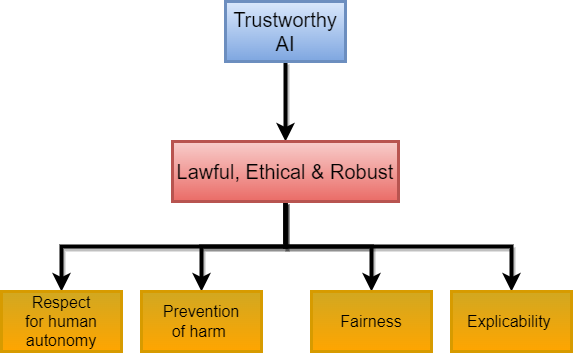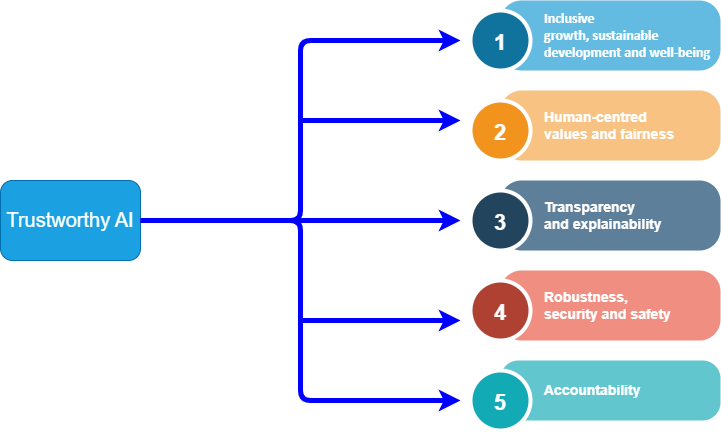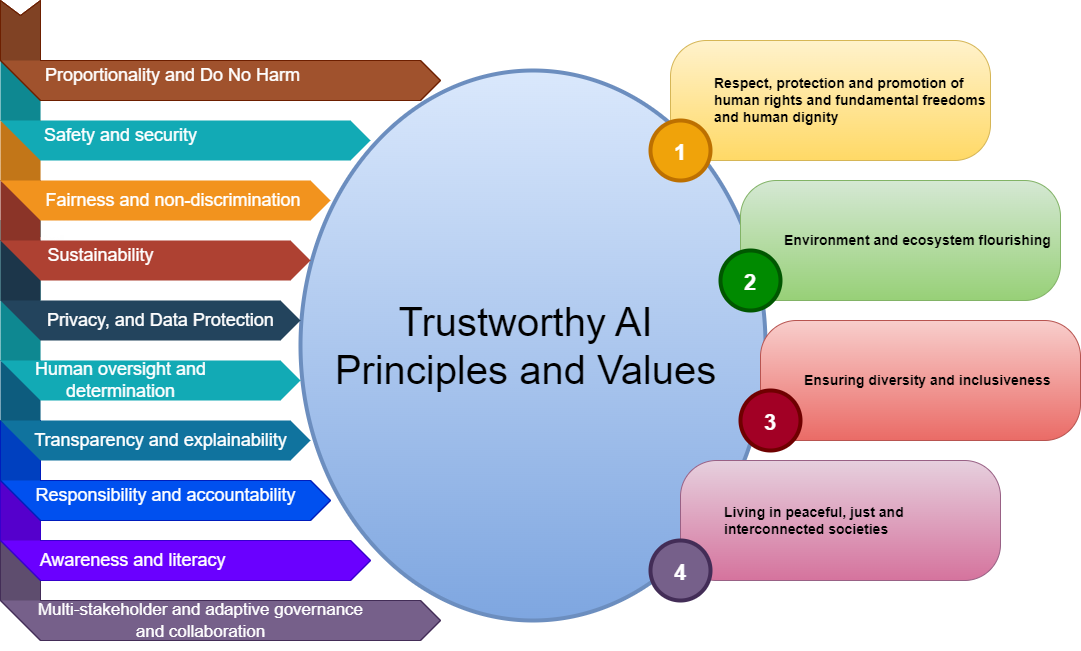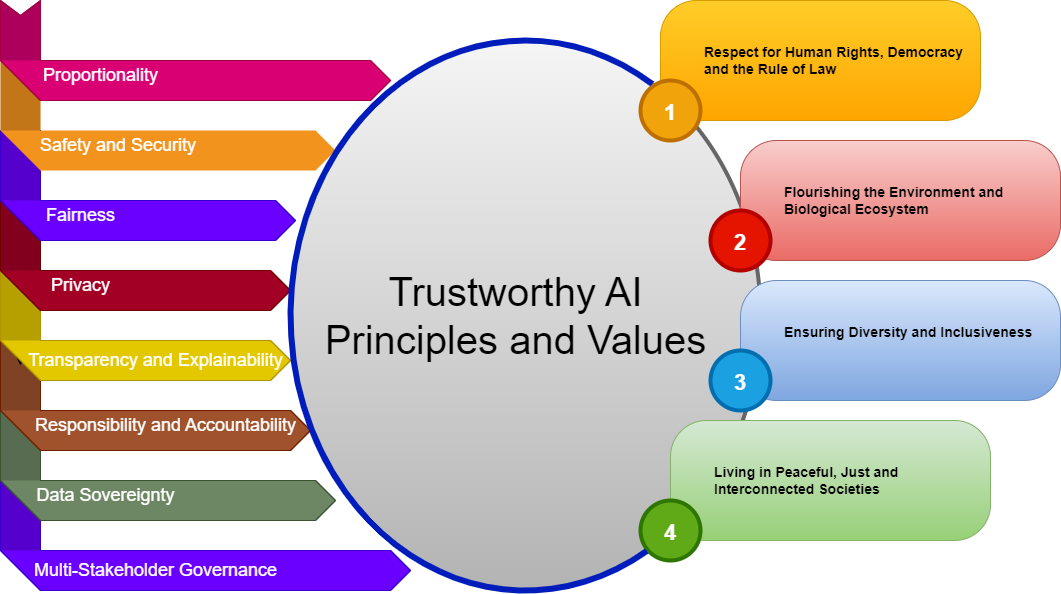Trustworthy Artificial Intelligence
For the development, application and use of artificial intelligence systems, trustworthiness is needed. For this reason, various trustworthy artificial intelligence definitions have been made and various principles and values have been adopted for trustworthiness around the world. Now, we will look at some of these principles and values.
Firstly, I will look at the principles and values recommended by High-level expert group on artificial intelligence, which is established by the European Commission. In "Ethics Guidelines for Trustworthy AI" published by High-level expert group on artificial intelligence, the concept of trustworthy artificial intelligence is built on three main components throughout its life cycle: 1) being lawful, namely comply with all current laws and regulations, 2) being ethical, namely adhere to ethical principles and values, and 3) being technically and socially robust [1]. Also, in the document, four ethical principles which should be adopted for the trustworthy AI are stated: 1) Respect for human autonomy, 2) Prevention of harm, 3) Fairness, and 4) Explicability [1].

Other principles and values that I will examine are those proposed by the OECD. The OECD defines trustworthy AI as "AI that respects the values-based principles" [2]. In this context, it identified five values-based principles: 1) Inclusive growth, sustainable development and well-being, 2) Human-centred values and fairness, 3) Transparency and explainability, 4) Robustness, security and safety, and 5) Accountability [2]. OECD's principles have also been accepted by the G20.

In the first draft of the “Recommendation on the ethics of artificial intelligence” published by the UNESCO Ad Hoc Expert Group, trustworthy is accepted as "an outcome of the operationalization of the principles in the document" and in this context, four values and ten principles were determined [3]. These values are 1) Respect, protection and promotion of human rights and fundamental freedoms and human dignity, 2) Environment and ecosystem flourishing, 3) Ensuring diversity and inclusiveness and 4) Living in peaceful, just and interconnected societies [3]. The principles are 1) Proportionality and Do No Harm 2) Safety and security, 3) Fairness and non-discrimination 4) Sustainability, 5) Right to Privacy, and Data Protection, 6) Human oversight and determination, 7) Transparency and explainability, 8) Responsibility and accountability, 9) Awareness and literacy, and 10) Multi-stakeholder and adaptive governance and collaboration [3].

Another document where we can find the principles and values for trustworthy artificial intelligence is Turkey's National Artificial Intelligence Strategy. Four values and eight principles were adopted in Turkey’s National Artificial Intelligence Strategy for "trustworthy and responsible AI". These values are 1) Respect for Human Rights, Democracy and the Rule of Law, 2) Flourishing the Environment and Biological Ecosystem, 3) Ensuring Diversity and Inclusiveness and 4) Living in Peaceful, Just and Interconnected Societies [4]. The principles are 1) Proportionality, 2) Safety and Security, 3) Fairness, 4) Privacy, 5)Transparency and Explainability, 6) Responsibility and Accountability, 7) Data Sovereignty, and 8) Multi-Stakeholder Governance [4].

The principles and values adopted in the Turkey's National Artificial Intelligence Strategy are in line and compatible with accepted principles and values for the trustworthy artificial intelligence around the world.
Writer : Gamze Büşra Kaya
References
[1]Ethics guidelines for Trustworthy Ai. Shaping Europe's digital future. (n.d.). Retrieved October 11, 2022, from https://digital-strategy.ec.europa.eu/en/library/ethics-guidelines-trustworthy-ai
[2]OECD AI Principles overview. The OECD Artificial Intelligence (AI) Principles - OECD.AI. (n.d.). Retrieved October 11, 2022, from https://oecd.ai/en/ai-principles
[3]Recommendation on the ethics of artificial intelligence. Unesdoc.unesco.org. (n.d.). Retrieved October 11, 2022, from https://unesdoc.unesco.org/ark:/48223/pf0000380455
[4]Ulusal Yapay Zekâ stratejisi 2021-2025. Türkiye Cumhuriyeti Cumhurbaşkanlığı Dijital Dönüşüm Ofisi - Ulusal Yapay Zekâ Stratejisi 2021-2025. (n.d.). Retrieved October 11, 2022, from https://cbddo.gov.tr/uyzs



